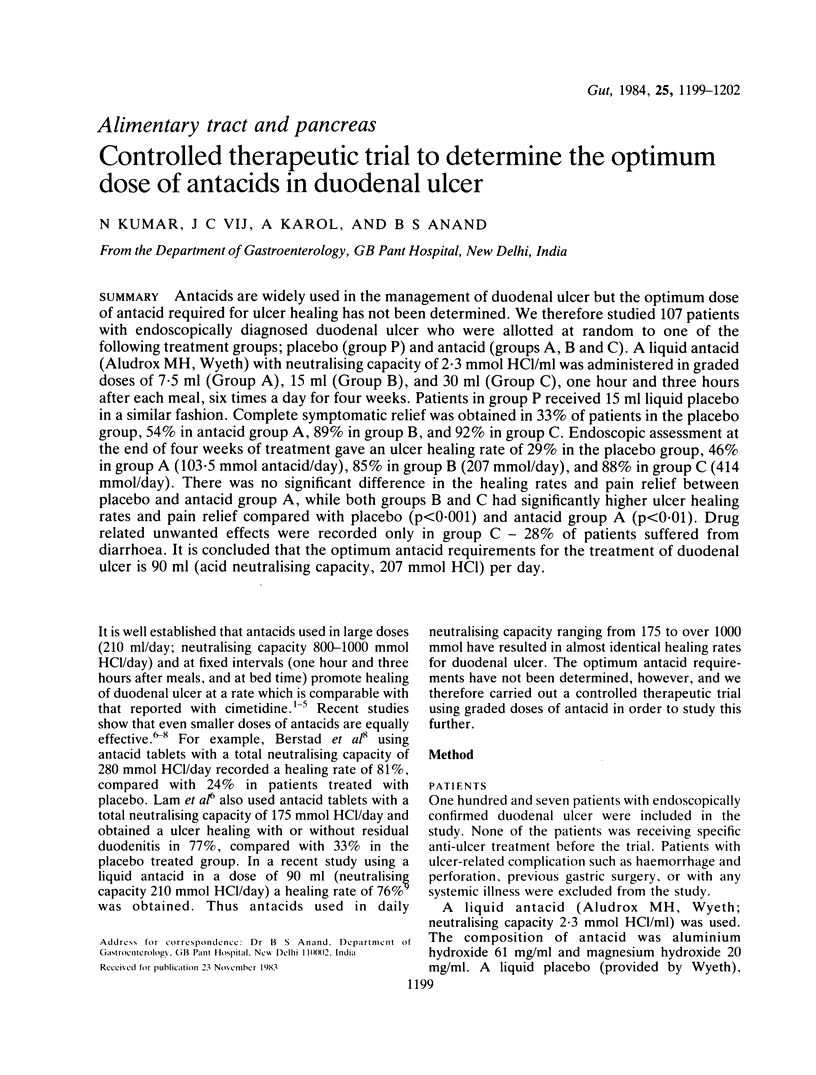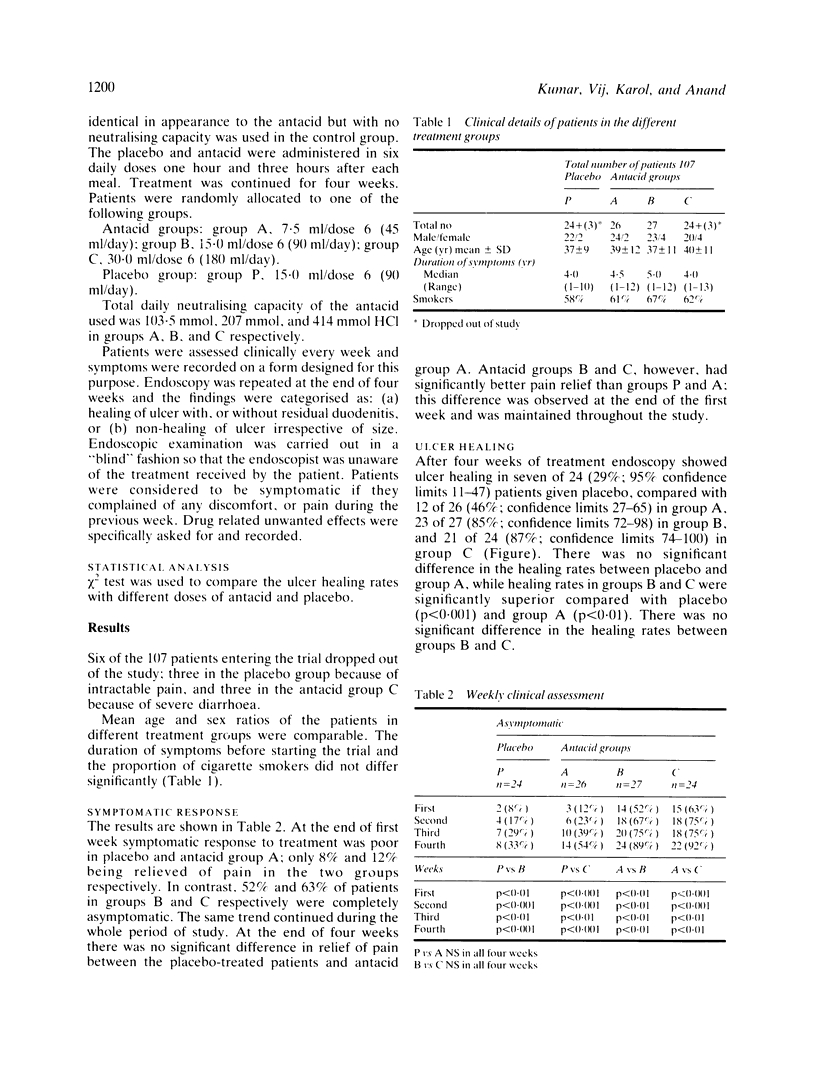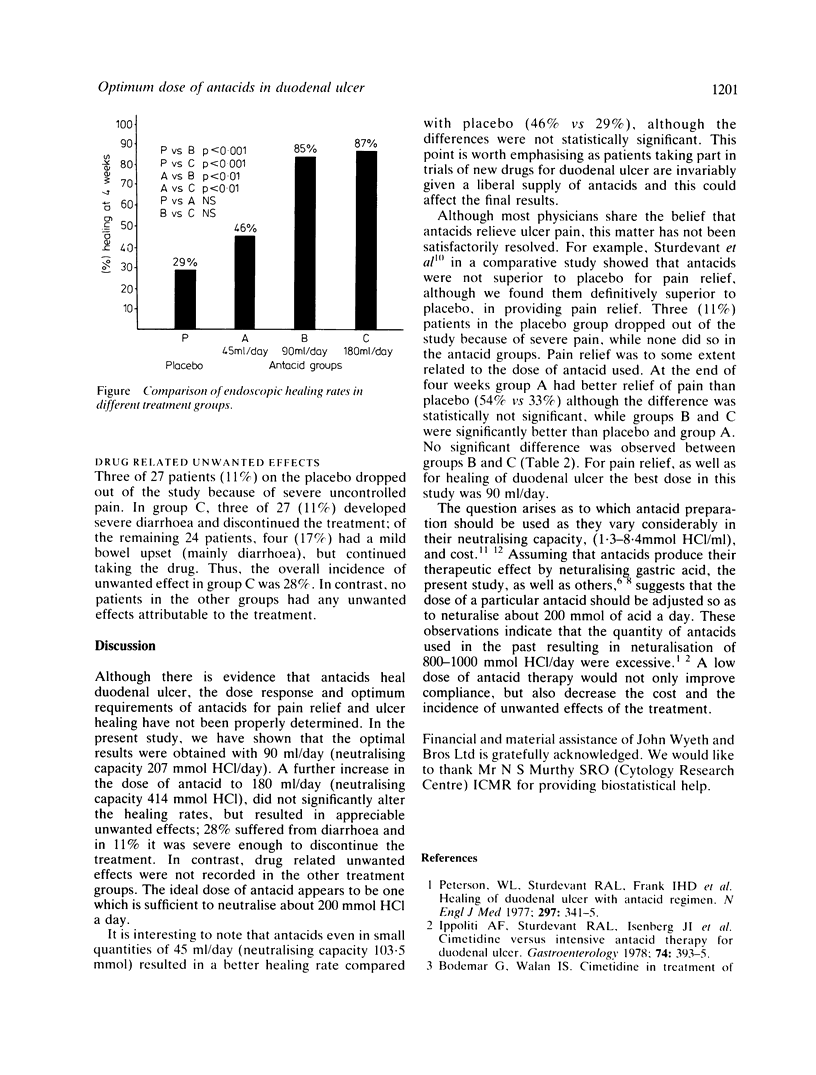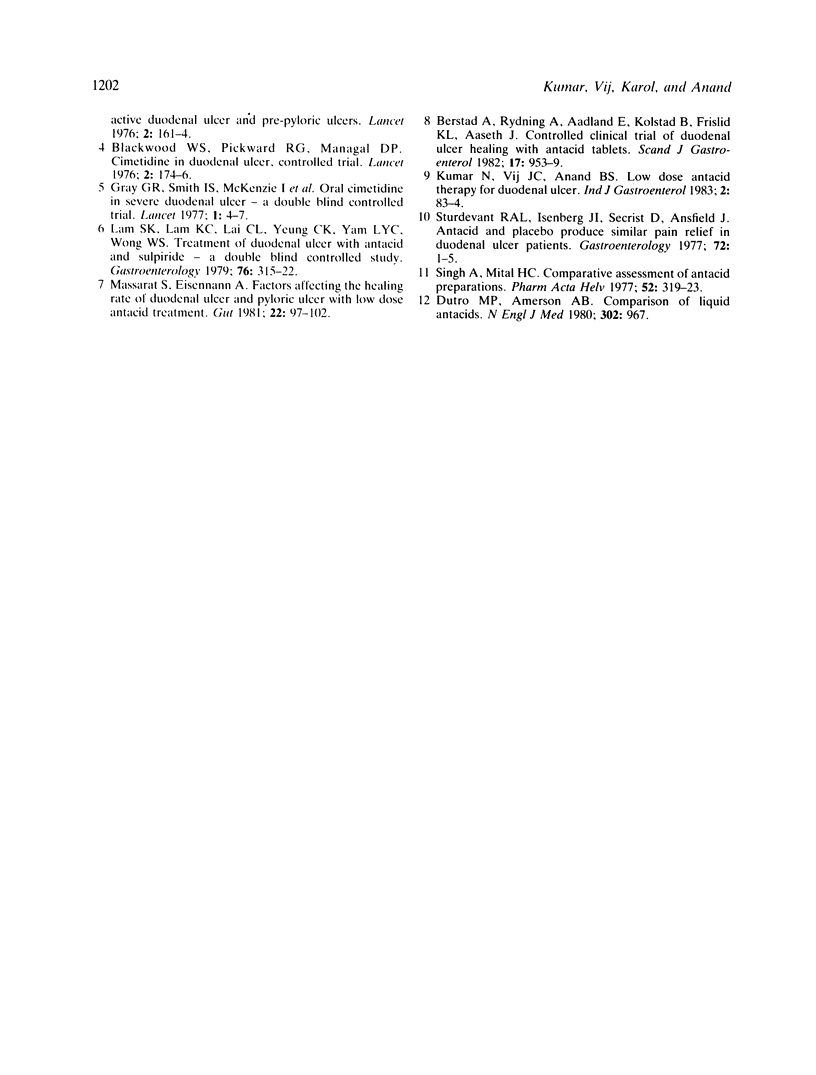Abstract
Antacids are widely used in the management of duodenal ulcer but the optimum dose of antacid required for ulcer healing has not been determined. We therefore studied 107 patients with endoscopically diagnosed duodenal ulcer who were allotted at random to one of the following treatment groups; placebo (group P) and antacid (groups A, B and C). A liquid antacid (Aludrox MH, Wyeth) with neutralising capacity of 2.3 mmol HCl/ml was administered in graded doses of 7.5 ml (Group A), 15 ml (Group B), and 30 ml (Group C), one hour and three hours after each meal, six times a day for four weeks. Patients in group P received 15 ml liquid placebo in a similar fashion. Complete symptomatic relief was obtained in 33% of patients in the placebo group, 54% in antacid group A, 89% in group B, and 92% in group C. Endoscopic assessment at the end of four weeks of treatment gave an ulcer healing rate of 29% in the placebo group, 46% in group A (103.5 mmol antacid/day), 85% in group B (207 mmol/day), and 88% in group C (414 mmol/day). There was no significant difference in the healing rates and pain relief between placebo and antacid group A, while both groups B and C had significantly higher ulcer healing rates and pain relief compared with placebo (p less than 0.001) and antacid group A (p less than 0.01). Drug related unwanted effects were recorded only in group C - 28% of patients suffered from diarrhoea. It is concluded that the optimum antacid requirements for the treatment of duodenal ulcer is 90 ml (acid neutralising capacity, 207 mmol HCl) per day.
Full text
PDF



Selected References
These references are in PubMed. This may not be the complete list of references from this article.
- Berstad A., Rydning A., Aadland E., Kolstad B., Frislid K., Aaseth J. Controlled clinical trial of duodenal ulcer healing with antacid tablets. Scand J Gastroenterol. 1982 Oct;17(7):953–959. doi: 10.3109/00365528209181120. [DOI] [PubMed] [Google Scholar]
- Blackwood W. S., Maudgal D. P., Pickard R. G., Lawrence D., Northfield T. C. Cimetidine in duodenal ulcer. Controlled trial. Lancet. 1976 Jul 24;2(7978):174–176. doi: 10.1016/s0140-6736(76)92347-3. [DOI] [PubMed] [Google Scholar]
- Dutro M. P., Amerson A. B. Comparison of liquid antacids. N Engl J Med. 1980 Apr 24;302(17):967–967. doi: 10.1056/NEJM198004243021715. [DOI] [PubMed] [Google Scholar]
- Gray G. R., Smith I. S., McKenzie I., Crean G. P., Gillespie G. Oral cimetidine in severe duodenal ulceration. A double-blind controlled trial. Lancet. 1977 Jan 1;1(8001):4–7. doi: 10.1016/s0140-6736(77)91650-6. [DOI] [PubMed] [Google Scholar]
- Kumar N., Vij J. C., Anand B. S. Low dose antacid therapy for duodenal ulcer. Indian J Gastroenterol. 1983 Jul;2(2):83–84. [PubMed] [Google Scholar]
- Lam S. K., Lam K. C., Lai C. L., Yeung C. K., Yam L. Y., Wong W. S. Treatment of duodenal ulcer with antacid and sulpiride. A double-blind controlled study. Gastroenterology. 1979 Feb;76(2):315–322. [PubMed] [Google Scholar]
- Peterson W. L., Sturdevant R. A., Frankl H. D., Richardson C. T., Isenberg J. I., Elashoff J. D., Sones J. Q., Gross R. A., McCallum R. W., Fordtran J. S. Healing of duodenal ulcer with an antacid regimen. N Engl J Med. 1977 Aug 18;297(7):341–345. doi: 10.1056/NEJM197708182970701. [DOI] [PubMed] [Google Scholar]
- Singh A., Mital H. C. Comparative assessment of antacid preparations. Pharm Acta Helv. 1977;52(12):319–323. [PubMed] [Google Scholar]
- Sturdevant R. A., Isenberg J. I., Secrist D., Ansfield J. Antacid and placebo produced similar pain relief in duodenal ulcer patients. Gastroenterology. 1977 Jan;72(1):1–5. [PubMed] [Google Scholar]


